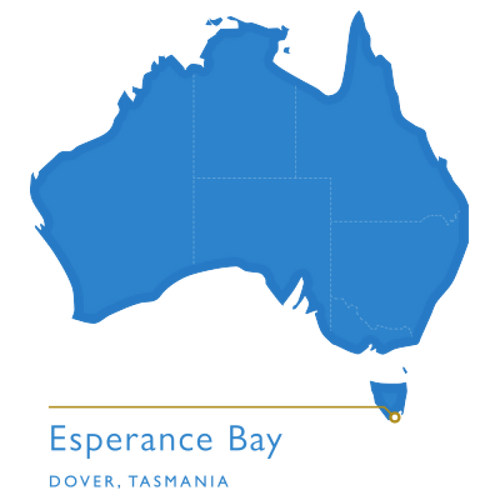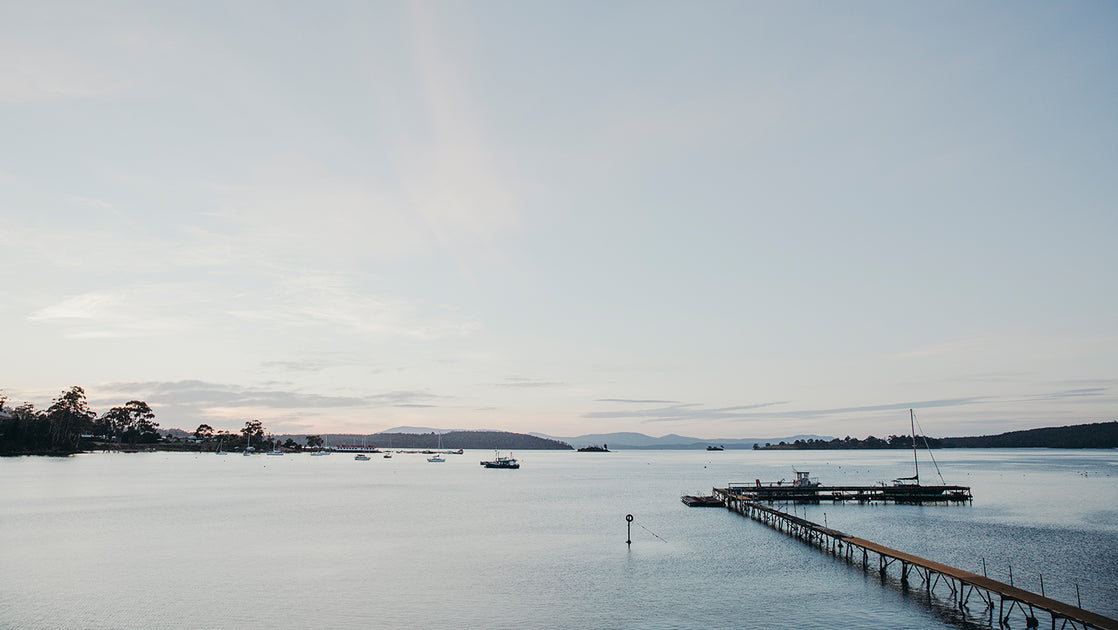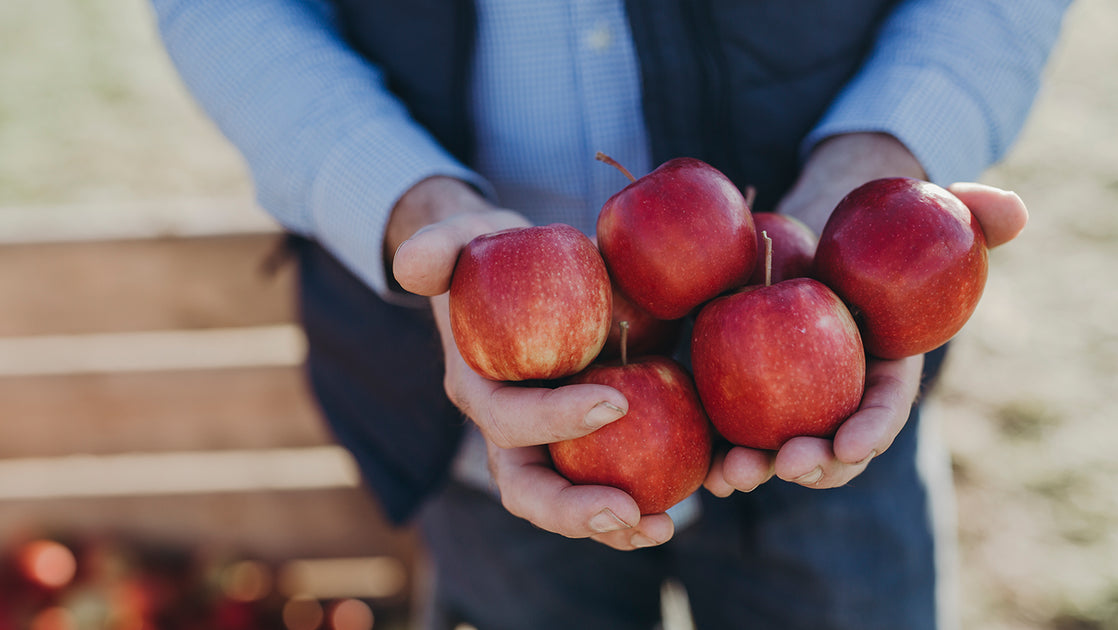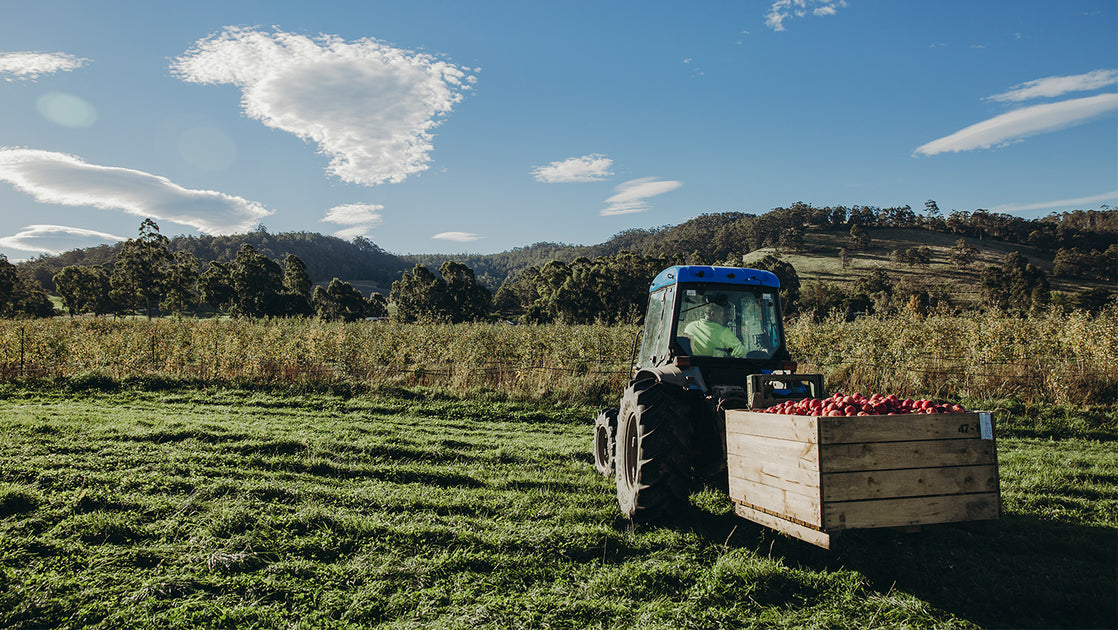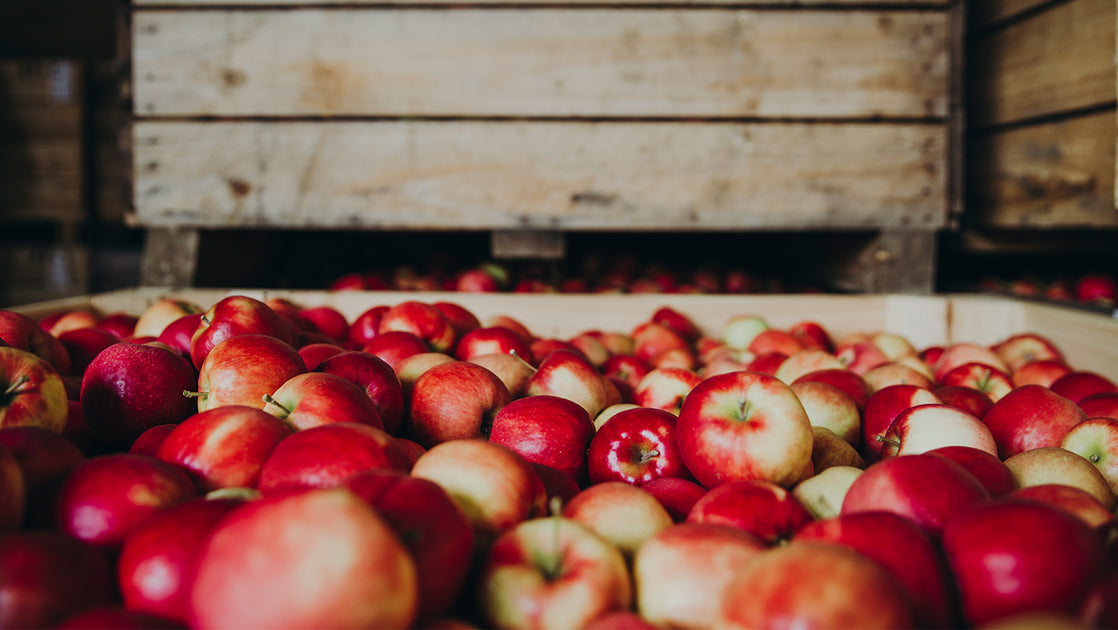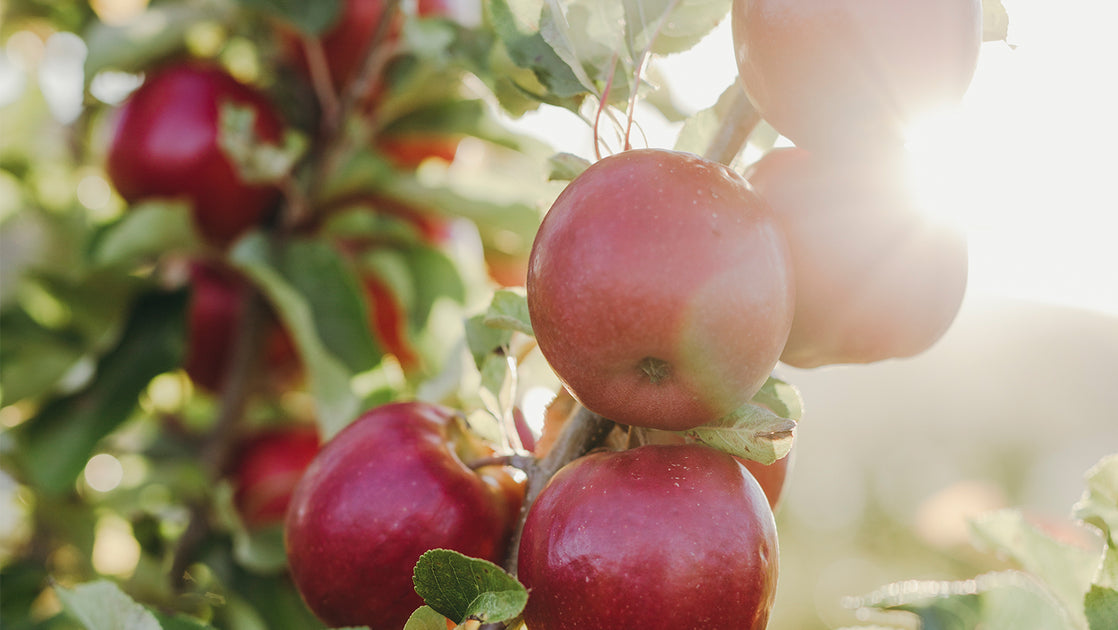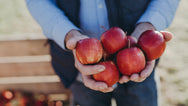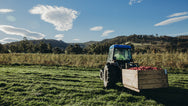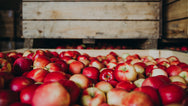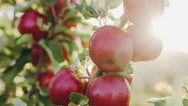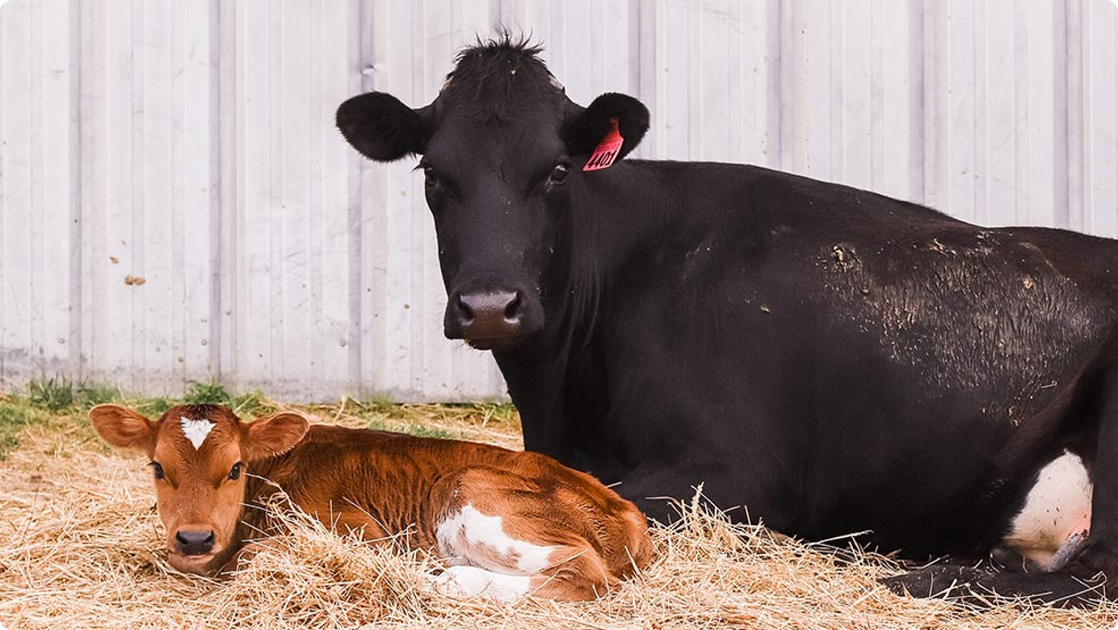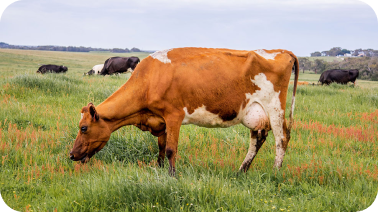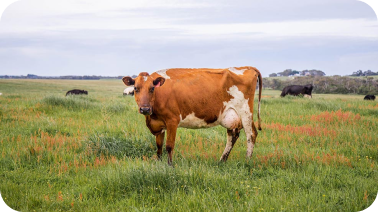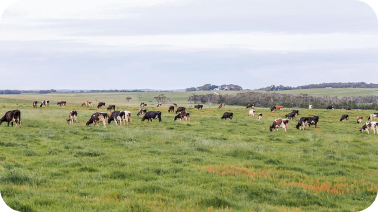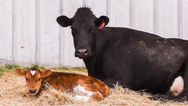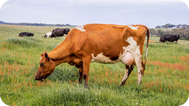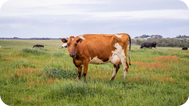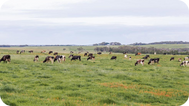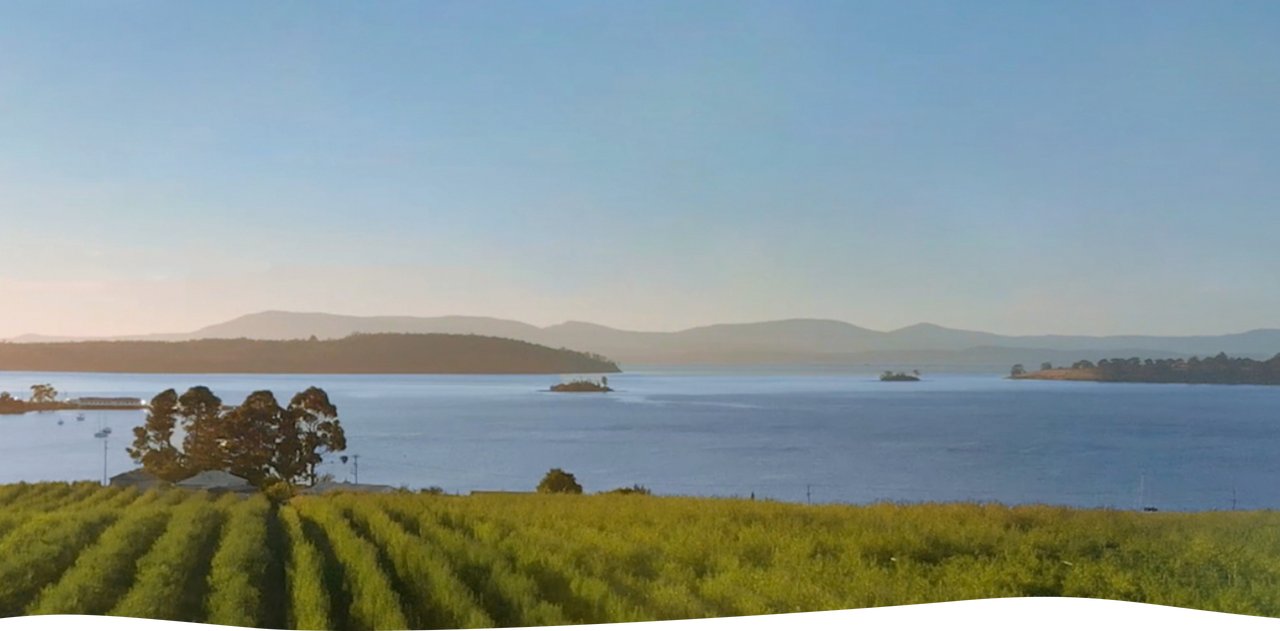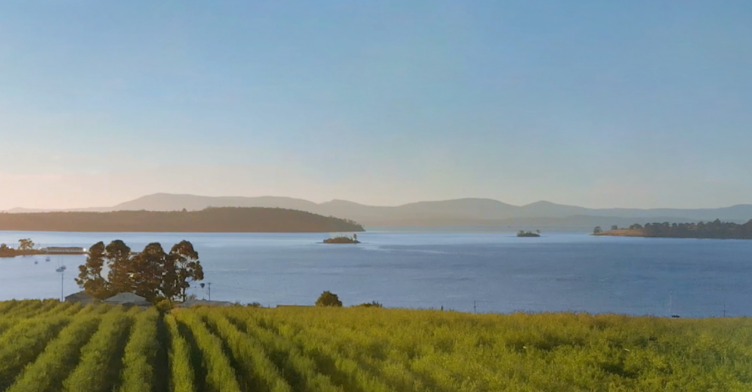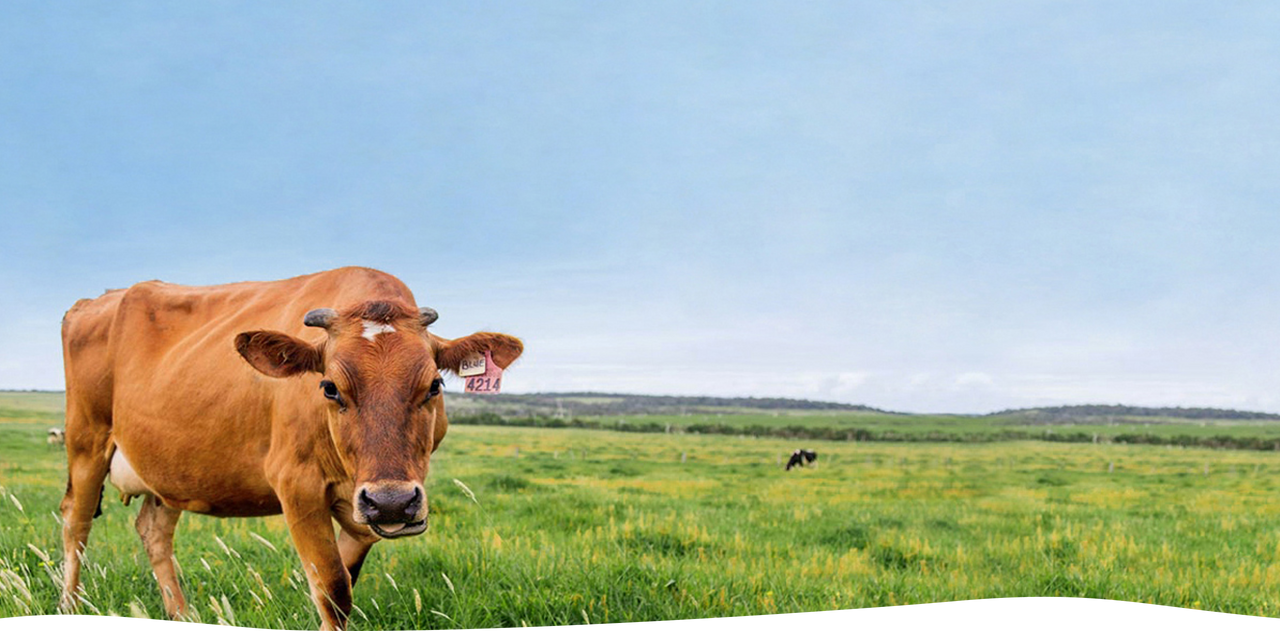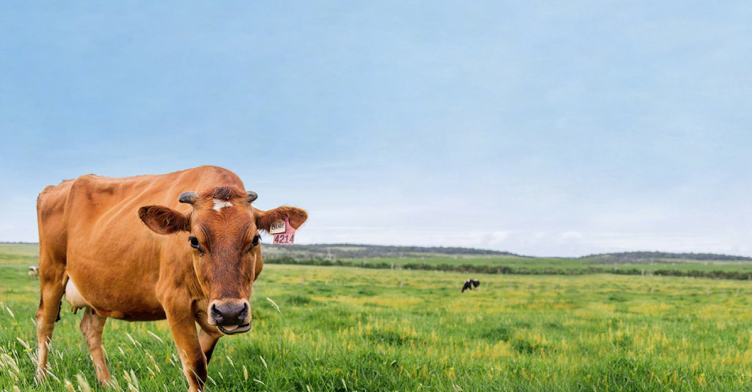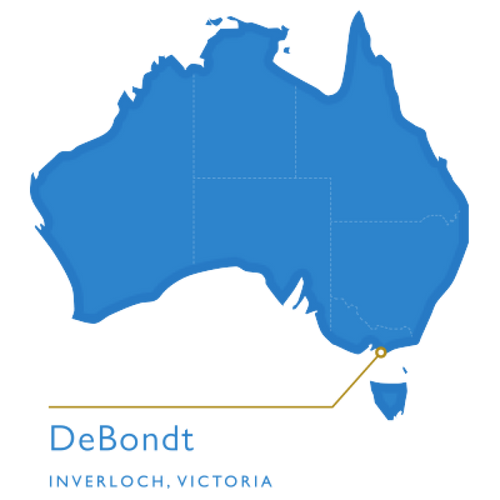Meet Mark Lambert – Sunnyside Organic Dairy Farmer, Tasmania
Nestled in the pristine hills of Tasmania, Mark Lambert and his family run Sunnyside, an organic dairy farm that supplies nutritious, organic milk to Bellamy’s Organic. A second-generation dairy farmer and father of ten, Mark’s journey to organic farming began unintentionally—but evolved into a deep commitment to producing milk from the ground up.
Since transitioning to organic farming in 2015, Mark has embraced a nature-led philosophy that prioritises the health of the soil, animals, and ultimately, the families who consume his milk. “Cows are designed to eat pasture—not grain,” he says, and his farm reflects that with lush, multi-species pastures made up of over 50 different plants. These nutrient-rich grasses support healthier cows and produce milk that’s naturally higher in vital micronutrients, omega fats, and antioxidants.At Sunnyside, the focus is on balance and biodiversity. From using natural rock-based fertilisers to feeding cows seaweed, Himalayan salt, and apple cider vinegar, everything is designed to support animal health without synthetic chemicals or antibiotics.
Mark’s cows graze freely year-round in fresh Tasmanian air—some of the cleanest in the world, according to the Cape Grim air monitoring station—ensuring a stress-free environment that results in wholesome, high-quality milk.
Mark’s passion for organics is personal, too. After battling mould-related illness, he found that eating organic food helped his body recover and strengthened his resolve to farm in a way that’s free from harmful toxins. Today, the milk from his farm not only nourishes his own children, but also helps give other children the best possible start in life.
For Mark, organic farming isn’t just a method—it’s a mindset. “You stop asking how to fix the problem, and instead ask why it’s happening. That’s where true health begins.”
Meet Matthew & Pip Gunningham – Organic Dairy Farmers, Montumana, Tasmania
When Matthew and Pip Gunningham arrived in Tasmania from the UK 25 years ago, they came looking for adventure and a better way of life. Today, they farm more than 3,000 acres of rich, fertile pasture in Montumana, raising over 1,300 grass-fed cows and thousands of free-range hens. Their organic journey began with a simple realisation: conventional farming didn’t align with their values—or their vision for a healthier future for their five children.
Now proud suppliers for Bellamy’s Organic, the Gunninghams have built a thriving organic dairy that mirrors nature at every turn. Their cows graze freely on multi-species pastures designed to nourish soil health, biodiversity, and animal wellbeing—resulting in milk that’s not just cleaner, but nutritionally rich. “We mimic nature,” says Pip. “No synthetic chemicals, no shortcuts—just soil, sunshine, and healthy animals doing what they’re designed to do.
”Their farming philosophy is rooted in regeneration: from planting trees and improving soil carbon levels to feeding their cows apple cider vinegar, seaweed, and mineral-rich kelp from Tasmania’s wild coastline. These practices mean healthier cows and nutrient-rich milk—naturally higher in beta-carotene, good fats, and essential micronutrients that support early childhood development.
As parents, Pip and Matthew understand the desire to give your child the very best. “When you have a child, you want nothing but purity,” says Pip. “And that’s exactly what we produce—milk that’s as close to nature as it gets.”
The Gunninghams’ farm is more than a business—it’s a family legacy, a community hub, and a daily labour of love. “We love what we do, we love where we live, and we’re proud our milk helps children grow strong and thrive.”
Meet John Staunton – Regenerative Organic Dairy Farmer, Sheffield, Tasmania
John Staunton didn’t start his career on the land—he began it in laboratories and environmental fieldwork. A former environmental scientist, John traded toxicological reports for greener pastures when he and his wife Megan bought their farm in Sheffield, Tasmania. Today, they raise 250 cows on over 700 acres of organically certified, regeneratively managed land—and they’re doing it all with future generations in mind.
With three young children of their own, John’s commitment to organic farming is personal. For John, organic is more than just avoiding synthetic inputs. It's a whole system approach built around biodiversity, soil health, and sustainability. His multi-species pastures include everything from chicory to vetch and plantain—plants chosen to nourish both cows and the soil microbiome. The result? Milk that’s naturally nutrient-dense, higher in antioxidants, and produced without synthetic pesticides, antibiotics, or added hormones.
Under John’s care, soil carbon levels have risen from 1.9% to 5.6%, rivers are protected with over 2,000 newly planted trees, and cows are treated like family—literally. “They all have nicknames, and we know them like you’d know your own kids. You just sense when something’s not right.”
Now proudly supplying milk for Bellamy’s Organic, John says the partnership reflects everything he values: transparency, trust, and the importance of giving every child a clean, healthy start. “There’s nothing more trusted than toddler milk drinks—and we’re proud that our milk plays a part in that.”
